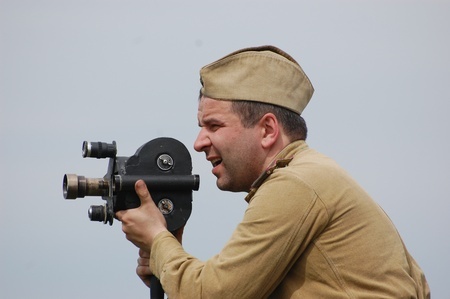
WWII and Its Neverending Focus in Cinema
February 10, 2016
World War II is a never-ending fight. Well, cinematically speaking, that is. World War II ended Sept. 2, 1945. However, the war still continues in movie theaters.
According to The Guardian, “the demand for Second World War movies appears unstoppable, the supply inexhaustible.” Last year, the Academy of Motion Picture Arts and Sciences fell in love with “The Imitation Game,” a film about Alan Turing, the man who cracked the German enigma code during WWII; “Unbroken,” a film about a US soldier who survived a shipwreck and a POW camp; and Wes Anderson’s current film, “The Grand Budapest Hotel,” which deals on a fictional level with the invasion in Germany.
While Iraq war films have become a hot topic in cinema currently, The Guardian predicts that its popularity will decline: “Vietnam, the Cold War, Iraq — they come and go, but 1939-45 just won’t fade away.”
Classicmovie.org, a website dedicated to gathering information of classic movies, provides a list of WWII films made between 1940 and 1970, and the list exceeds 100 movies. That doesn’t even count contemporary films of the same subject today. So, why are there so many?
There are plenty of reasons that an enormous conflict such as WWII has captured the attention of the cinematic world. The war traumatized entire societies, triggered a new wave of technological developments, and created ethical upheavals. The Guardian says it has an “almost endless potential for storytelling.”
“The war has become a metaphor, not just history,” says author Frank Cottrell Boyce, scriptwriter for “The Railway Man.” Boyce continues, “We’re attracted to it because of its moral certainties.”
Matthew Sweet, broadcaster and author of “The West End Front,” a book about the World War II, says the popularity has to do with “a growing sentimentality about the war.…It’s a sentimentality that allows people to pursue a dream of the war, and which enables their fantasies and preoccupations about it. I’m afraid it’s a very empty engagement.”
A great example of a fantasy-level interpretation of WWII is in Quentin Tarantino’s “Inglorious Bastards,” where a gang of Jewish solders shoots Hitler until his face is blown clean off.
There are many other examples, such as the Oscar-winning, “The Kings Speech,” where the message is that a single radio broadcast can change history. Matthew Sweet commented on these types of films saying, “They’re an attempt to fix an idea of the war. I suspect Steven Spielberg’s version of D-day will be the one in people’s heads in 300 years’ time, in the same way that we think of the Russian revolution through Eisenstein’s films. It’s almost like a grab to produce the official version.”
Recently, WWII movies have been bouncing back between being historically accurate and fictional. For example, in 2004, “Downfall” sought to develop the idea that not all Germans were fanatical Nazis. Roman Polanski’s “The Pianist,” according to The Guardian, “suggested the essential kinship of the sophisticated music-loving German and the persecuted Holocaust victim.”
Will the topic of WWII in cinema ever end? The war has sunk into almost every genre of film such as comedy with “Life Is Beautiful” and the superhero genre with “X-Men.” Sweet says, “Until a new large-scale conflict comes along…the second world war will have its place.”